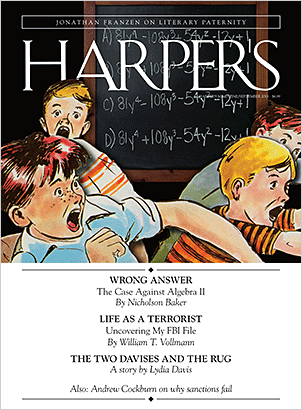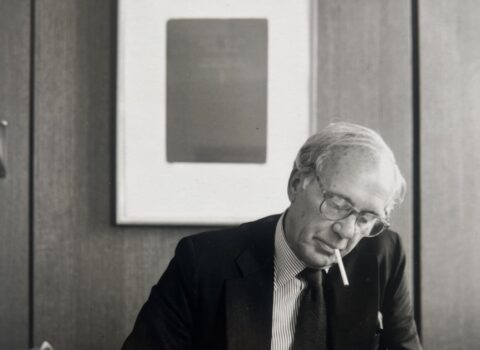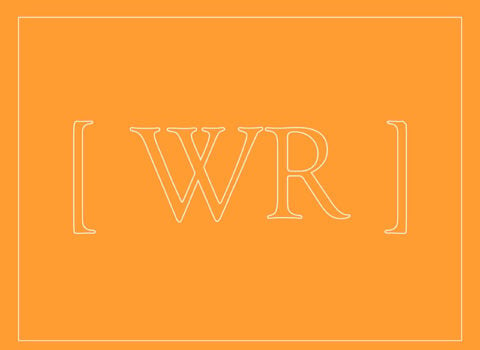Andrew Cockburn on the Failure and Ferocity of America’s Sanctions Programs
“We ‘squeeze, and then squeeze some more’ with no end in sight.”
 As America prepares to impose another round of sanctions on Iran, Andrew Cockburn, the newly appointed Washington editor of Harper’s Magazine, speaks with the architects of America’s sanctions programs past and present.
As America prepares to impose another round of sanctions on Iran, Andrew Cockburn, the newly appointed Washington editor of Harper’s Magazine, speaks with the architects of America’s sanctions programs past and present.
“We’re trying to break the nuclear will of a hardened ideologue,” says Mark Dubowitz, executive director of the Foundation for Defense of Democracies, a powerful outside player in the world of sanctions. He tells Cockburn that the aim of sanctions “is to try and bring the Iranian economy to the brink of economic collapse and, in doing so, create fear on the part of the Supreme Leader.” The ultimate goal is to precipitate economic collapse that will lead to political collapse.
“We grabbed much of Iran’s wealth and kept it,” says Robert McBrien of the sanctions the U.S. imposed on Iran in 1979, which remain in effect today. “Sanctions are the soft edge of hard power,” says McBrien, who directed the Global Targeting division of the Office of Foreign Assets Control for twenty-four years. “They make people suffer. They hurt. They can destroy.”
They can also backfire: “We have sanctioned ourselves out of any influence on Tehran,” says Trita Parsi, president of the National Iranian American Council. Parsi notes that the Iranian leadership has responded to previous sanctions by redoubling work on its nuclear program. At a Washington gathering, Cockburn speaks to a senior State Department official, a wealthy Iranian-American businessman who is confident that “the Iranians will respond to pressure.” Another Iranian in the group disagrees strongly: “You should meet my aunts in Tehran,” he tells Cockburn. “They are from the old regime, nothing to do with the government, and yet they are so angry about the sanctions, they demonstrate for a nuclear Iran.”
The tool has become a “machine unto itself,” says Vali Nasr, who served in the State Department during Obama’s first term. “It becomes a rote habit,” he tells Cockburn, “operated by a bureaucracy that is always looking to close that last loophole. Pressure becomes the end, not the means.”
Dubowitz outlines a plan to cut off all Iranian oil exports. “Countries would have to stop buying Iranian oil immediately, or their banks would be sanctioned,” he tells Cockburn. “Chinese, Japanese, South Korean, Indian, South African, Turkish, Taiwanese — everyone who’s buying Iranian oil would be given a short period of time to go buy it somewhere else, or face sanctions against their financial institutions. . . . We could take a million barrels of Iranian oil off the market tomorrow.”




